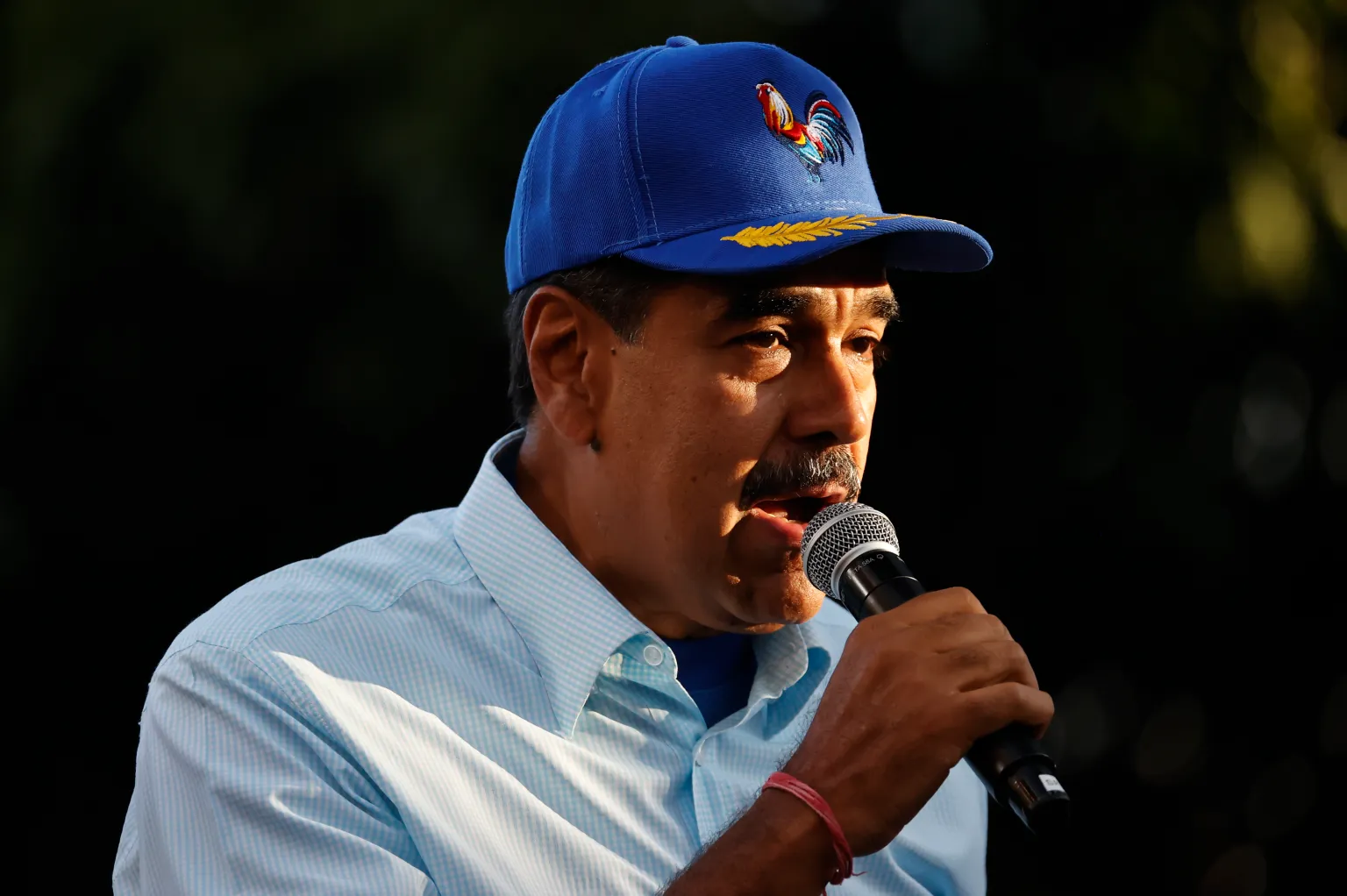International
Nicolás Maduro asks Parliament to approve the law against fascism “very quickly”

The president of Venezuela, Nicolás Maduro, asked Parliament this Saturday to approve “very quickly” the law against fascism, neo-fascism and hate crimes, which contemplates, among other things, sanctioning those who promote acts of “violence” in the country, a product of “intolerance.”
“We are facing a malevolent, fascist people. Do you understand well what fascism is? It is hatred, intolerance, turned into violence,” Maduro said in reference to the largest opposition coalition, at the end of a demonstration in which his supporters and state officials supported the “victory” of the president in the presidential elections, a triumph questioned inside and outside the country.
In addition, he pointed out that if the Government had not “defeated on Monday, July 29” the anti-chavist mobilizations against the official result of the elections, which the authorities described as “violent” and led by opposition politicians, “on Tuesday 30, they would have gone to kill more than one” of those present at the event.
“That’s why I support with all my strength what the people are doing with the National Assembly (AN, Parliament) and I ask that it be approved very quickly (the law) against fascism, neo-fascism and hate crimes,” he added.
In the activity, broadcast by the VTV channel, the president of Parliament, Jorge Rodríguez, said that he has heard “a violent extremist,” a person, whose name he did not pronounce, who – he assured – “only wants hatred between Venezuelans and Venezuelans” so – he stressed – its “end” arrives.
“This is your ending, sayona (as some Chavistas call María Corina Machado). And these laws that we are discussing are to provide tools for the people of Venezuela to fight a scourge (…). With fascism nothing, with fascism it is not negotiated, fascism is confronted, fascism is defeated, fascism is annihilated and extinguished,” Rodríguez said.
In this sense, the deputy – who did not specify when or where he had heard the “extremist” or what were the words of “violence” to which he referred – said that it is being discussed throughout the country what will be “the contributions” of the bill against fascism, so that “nothing escapes” in this fight.
According to the NGO Provea, the bill against fascism “adds to a series of arbitrary regulations that seek to close the civic space, silence critical sectors and legitimize persecutory practices by the Venezuelan State.”
On Tuesday, the UN High Commissioner for Human Rights, Volker Türk, urged the authorities of the Caribbean country not to approve “laws that undermin the civic and democratic space of the country,” among which he mentioned the law against fascism and the law against NGOs, which was already approved this week.
International
Police investigate deaths of Rob Reiner and wife as apparent homicide

The Los Angeles Police Department (LAPD) is investigating the deaths of Hollywood actor and filmmaker Rob Reinerand his wife as an “apparent homicide,” amid a wave of tributes to the director of classics such as When Harry Met Sally.
According to U.S. media reports on Sunday, Rob Reiner and Michele Singer Reiner were found dead at their Los Angeles mansion with what appeared to be stab wounds.
Several political figures shared messages of condolence following the reported deaths of the director of A Few Good Menand his wife.
While the LAPD did not officially confirm the identities of the victims, it stated that homicide detectives were dispatched to the Reiner residence.
“At this time, no additional details are available and the investigation into an apparent homicide is ongoing,” the Los Angeles Police Department said in a statement posted on social media.
LAPD Deputy Chief Alan Hamilton told reporters that no arrests have been made and that no individuals are currently being questioned as suspects.
“I’m not going to confirm whether anyone is being questioned at this moment or not. We are going to try to speak with as many family members as we can,” Hamilton said.
CNN reported that a family spokesperson confirmed the deaths of Reiner and his wife.
California Governor Gavin Newsom, former U.S. President Barack Obama, and former Vice President Kamala Harrisissued statements expressing their condolences.
International
U.S. and Mexico Reach Deal to Address Water Deficit Under 1944 Treaty

The United States and Mexico have reached an agreement to comply with current water obligations affecting U.S. farmers and ranchers and for Mexico to cover its water deficit to Texas under the 1944 Water Treaty, the U.S. Department of Agriculture said in a statement.
The department уточified that the agreement applies to both the current cycle and the water deficit from the previous cycle.
On Monday, U.S. President Donald Trump accused Mexico of failing to comply with the water-sharing treaty between the two countries, which requires the United States to deliver 1.85 billion cubic meters of water from the Colorado River, while Mexico must supply 432 million cubic meters from the Rio Grande.
Mexico is behind on its commitments. According to Washington, the country has accumulated a deficit of more than one billion cubic meters of water over the past five years.
“This violation is severely harming our beautiful crops and our livestock in Texas,” Trump wrote on Monday.
The Department of Agriculture said on Friday that Mexico had agreed to supply 250 million cubic meters of water starting next week and to work toward closing the shortfall.
Agriculture Secretary Brooke Rollins, quoted in the statement, said Mexico delivered more water in a single year than it had over the previous four years combined.
Trump has said that if Mexico continues to fall short of its obligations, the United States reserves the right to impose 5% tariffs on imported Mexican products.
Mexico’s Deputy Foreign Minister for North America, Roberto Velasco, said that a severe drought in 2022 and 2023prevented the country from meeting its commitments.
International
Several people shot in attack on Brown University campus

Several people were shot on Saturday in an attack on the campus of Brown University, in the northeastern United States, local police reported.
“Shelter in place and avoid the area until further notice,” the Providence Police Department urged in a post on X. Brown University is located in Providence, the capital of the state of Rhode Island.
U.S. President Donald Trump said on his social media platform Truth Social that he had been briefed on the situation and that the FBI was on the scene.
At 5:52 p.m. local time (11:52 p.m. GMT), Brown University said the situation was still “ongoing” and instructed students to remain sheltered until further notice.
After initially stating that the suspect had been taken into custody, Trump later posted a second message clarifying that local police had walked back that information. “The suspect has NOT been apprehended,” the U.S. president said.
-

 International4 days ago
International4 days agoWashington declares State of Emergency as atmospheric river brings severe flooding
-

 International4 days ago
International4 days agoU.S. to require five-year social media history from tourists under Visa Waiver Program
-

 International3 days ago
International3 days agoCuba battles out-of-control dengue and chikungunya epidemic as death toll rises to 44
-

 Central America3 days ago
Central America3 days agoHonduras election crisis deepens as CNE president denounces intimidation attempts
-

 Central America4 days ago
Central America4 days agoOAS and EU urge honduran political actors to respect vote results and avoid unrest
-

 International3 days ago
International3 days agoColombia says it would not reject Maduro asylum request as regional tensions escalate
-

 International2 days ago
International2 days agoSeveral people shot in attack on Brown University campus
-

 International3 days ago
International3 days agoEcuador on track for record violence as homicides hit highest level in Latin America again
-

 International4 days ago
International4 days agoSix ecuadorian soldiers jailed pending trial for alleged extrajudicial execution
-

 International2 days ago
International2 days agoU.S. and Mexico Reach Deal to Address Water Deficit Under 1944 Treaty
-

 Central America13 hours ago
Central America13 hours agoPanama seizes over three tons of drugs hidden in Caribbean port container
-

 International13 minutes ago
International13 minutes agoPolice investigate deaths of Rob Reiner and wife as apparent homicide
-

 Central America15 minutes ago
Central America15 minutes agoOAS urges swift recount in Honduras as election results remain uncertain


























